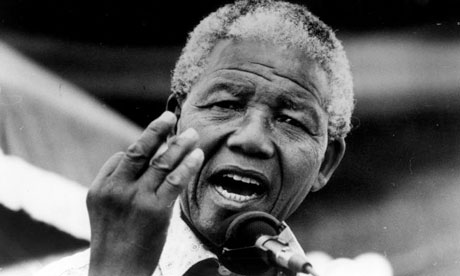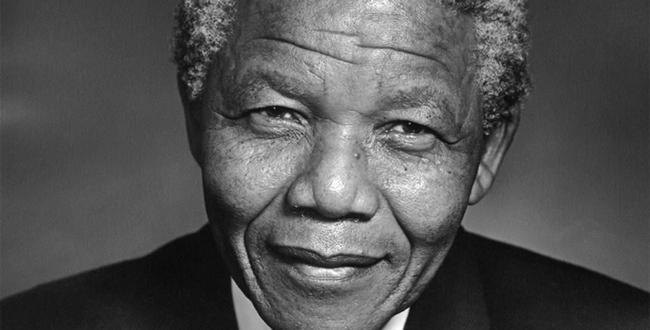Nelson Mandela, the man that delivered South Africa from apartheid, has died at the age of 95 to a lung infection. Yesterday, President Jacob Zuma made the announcement that Mandela had died in a late night TV address to the nation. Whilst South Africa mourns, flags have been flown at half-mast and crowds have been celebrating his life through dance and song throughout the night outside his former homes across South Africa.

Not only does South Africa mourn the death of one of their greatest heroes, but so does the world mourn the death of a statesman and a teacher. Internationally, there has been a wide response from the world’s leaders, with politicians paying their respects despite any kind of political divide. The Dalai Lama has said we must carry on in the spirit of him, and John Kerry has been encouraging Israel and Palestine to make peace in his memory. Not only did he deliver South Africa from apartheid, but in the process gave hope to hundreds of thousands around the world and the teachings that he gave are by no means exclusive to South Africa.
The news was sadly not entirely unexpected, however. Earlier this year in June he was admitted to hospital in a “serious condition”, where he had suffered from a recurrence of a lung infection. Since then, he has remained in a serious condition, being briefly discharged in September. However, it was the recurrence of a lung infection that finally took him. It has been confirmed that Mandela’s daughters were given the news whilst at the premier for the biopic of his life in London. Some of the rest of his substantial family (three children, 17 grandchildren and 13 great-grandchildren), however, were with him in his last days.
“I have cherished the ideal of a democratic and free society in which all persons live together in harmony and with equal opportunities. It is an ideal which I hope to live for and to achieve. But if needs be, it is an ideal for which I am prepared to die.”
A member of the Xhosa clan, Rolihlahla Mandela was born in 1918, as the son of a Tribal Chief and into the Thembu Royal Family, in the village of Mvezo. He spent his early years living in the village of Qunu with his mother (his father being a polygamist, with families in many different villages), where he spent his time tending to herds and spending time with the other children. He was sent to a Methodist School, the first in his family to attend school, where he became literate (unlike his parents) and was baptised with the English name “Nelson”. At an early age, he developed an interest in African History and Anti-Imperial studies.
During his further education, he continued an interest in native African culture and began forming relationships with his contemporaries, outside of his clan, leading to him losing his self-proclaimed “stuck up” attitude. He began studying for a Bachelor of Arts degree at the University of Fort Hare, where he continued an interest in sport and worked with the Church. Mandela left the University after one year without his degree.
He subsequently went to Johannesburg (to escape a pre-arranged marriage) where he found work earning a small wage. Experiencing and being exposed to poverty, he became increasingly politicised and continued a further education via correspondence course, whilst at the same time going to Communist meetings, being impressed with the inter-racial co-operation. Being pardoned for running from marriage, Mandela then chose to approach a political career, through doing Law Studies at the University of Witwatersrand. It is here that he finally joined his future party, the ANC
It was during the 1940s that Mandela began his first revolutionary acts. Becoming a member of the ANC, he was part of the delegation that convinced the incumbent ANC President to form the ANC Youth League. At this stage of his life, he was of the opinion that the struggle against oppression was racially motivated, and that the fight for self-determination should be waged without alliances. As he rose through the ranks of the ANC, from being secretary of the ANCYL to presidency of the Transvaal ANC, he encountered a number of problems, including ideological disparities with his contemporaries and strained relationships with his family. By becoming a prominent member of the opposition to the apartheid government, Mandela garnered a substantial amount of attention. A number of times he was banned from public speaking, restricted to speaking to only one person at a time, as well as a number of spells in prison.
Eventually, non-violent means of revolution seemed unsuccessful, so Mandela co-founded the Unkhonto we Sizwe (“Spear of the Nation which was often abbreviated to the MK), a militant organisation. The MK was responsible for a campaign of bombings, on government/military targets with a minimum of casualties. Should this have failed, the MK was said to have pursued a course of Guerilla warfare and terrorism against the government.
“Difficulties break some men but make others. No axe is sharp enough to cut the soul of a sinner who keeps on trying, one armed with the hope that he will rise even in the end.”
On the 5th of August, 1962, Mandela was arrested and charged with leaving the country without permission, causing workers strikes and committing sabotage against the government. The Rivonia trial, which Mandela and his co-conspirators used to highlight their political ideals, condemned them all to life imprisonment (as opposed to death, which the prosecution had initially suggested). It is not a massive leap to consider that the only reason their lives were spared was the huge amount of international attention it received. Nonetheless, Mandela was imprisoned, moving between different prisons, including Robben Island, for 18 years, Pollsmoor for 6 and a final 2 year stint in Victor Vester Prison. In total, Mandela spent 27 years in prison, ending when apartheid President de Klerk reconsidered the government position on Mandela and the ANC. In early 1990, Mandela was freed and all previously banned political parties were legalised.
Upon his release from prison, Mandela faced a huge problem. During his imprisonment, he had become a famous figure of resistance against the apartheid government. His release garnered international attention, and now he had to play a delicate balancing act in order to reach a point of negotiation. On one hand, he had to be extreme enough to placate the more violent aspects of the ANC, whilst at the same time being moderate enough to seem approachable by the white minority. After an erstwhile trip around the globe, meeting with a number of international leaders, he led a delegation from the ANC to enter into negotiations with the government.

After a few years of negotiations with de Klerk, the goal of democratic South Africa seemed within reaching point. Whilst there were still a number of obstacles in the way, a date was set for a General Election in 1994. At this point, the ANC became a well run electorate machine. It was without much surprise that on May 10, 1994, Mandela was inaugurated as president. Much of his presidency centred upon undoing the ills of his predecessors. Addressing the huge disparities between ethnic groups in economic and social terms, he also set about the more daunting task of reconciliation. In his latter years, he gradually receded from the front lines of South African Politics, retiring in 1999. However, he still maintained a busy public life, campaigning for charities and promoting the interests of South Africa. He continued to do as much, till poor health became too much to continue.
The legacy that Mandiba has left behind is huge. He shall remembered for the creation of a modern state in South Africa and his inspirational words. Mandela will lie in state in Pretoria for 3 days, then given a state funeral in Qunu, where he grew up, on December 15th.
“Do not judge me by my successes, judge me by how many times I fell down and got back up again.”

